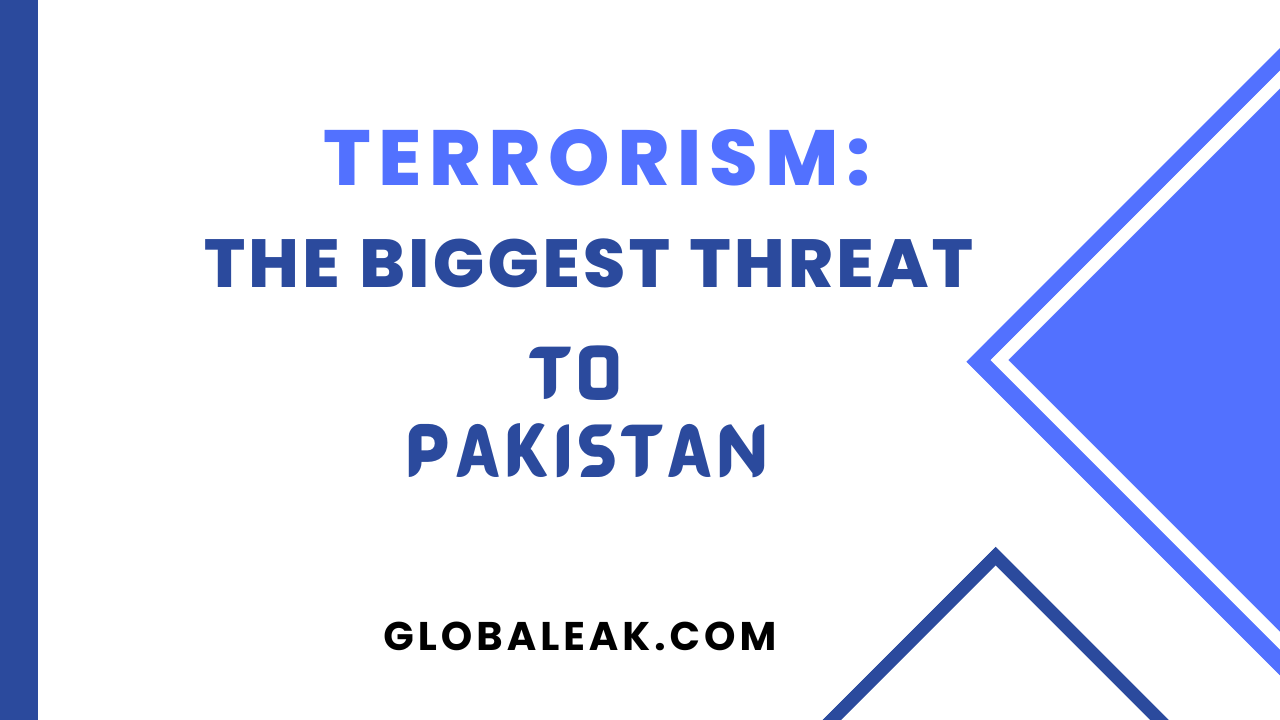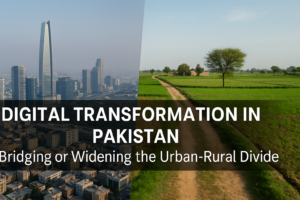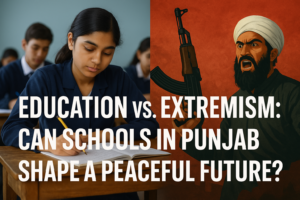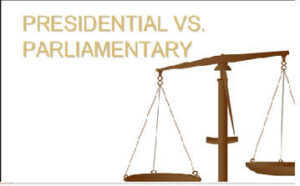Introduction:
Terrorism has become the biggest threat to Pakistan’s stability, progress, and peace. Over the years, the country has faced the brutal consequences of terrorism, both in terms of loss of life and damage to infrastructure. This essay aims to explore the history of terrorism in Pakistan, the various forms it takes, and the causes behind its prevalence. Furthermore, it will analyze the extent to which terrorism poses a significant threat to Pakistan, and conclude with recommendations to combat this menace effectively.
History of Terrorism in Pakistan: An overview:
Pakistan’s struggle with terrorism dates back several decades. The country became a hotbed for extremist activities due to its involvement in the Afghan-Soviet War in the 1980s. During this period, foreign fighters and militants flocked to Pakistan, leading to the rise of radical ideologies and the formation of militant organizations. The subsequent years witnessed a surge in terrorist incidents, including suicide bombings, sectarian violence, and attacks on security forces and public spaces.
Pakistan Faces Various Forms of Terrorism:
Terrorism in Pakistan manifests itself in different forms, each posing unique challenges to the nation’s stability. Ethnic and sectarian conflicts have fueled violence between various groups within the country. Nationalist and separatist movements in Balochistan and other regions have also contributed to the overall security situation. Additionally, Islamist extremist groups operating under the banner of jihad have orchestrated attacks in the name of religion, aiming to destabilize the country.
Causes:
The root causes of terrorism in Pakistan can be categorized into internal and external factors. Internally, social, political, and economic issues have created an environment conducive to the growth of extremist ideologies. Socially, the unequal distribution of wealth, rising illiteracy rates, increasing social injustice, lack of social security, population growth, and dissatisfaction among marginalized communities have fueled frustration and vulnerability, making them susceptible to radicalization. Political factors such as nepotism, favoritism, corruption, instability, deteriorating law and order situations, and a lack of transparency and accountability have further eroded public trust in the government.
Religious factors play a significant role in fostering extremism. Sectarianism, religious intolerance, and the misinterpretation of religion have contributed to the radicalization of individuals and the promotion of violent ideologies. Externally, Pakistan has been affected by global events such as the West’s war on terror, the Sykes-Picot Agreement, the Arab Spring, and the Russian invasion of Afghanistan. These events, along with issues like exploitation, hegemonic designs, and meddling into the affairs of other states, have had a direct impact on Pakistan’s security situation. The unresolved disputes of Kashmir and Palestine, as well as allegations of state-sponsored terrorism, have further complicated the fight against terrorism within Pakistan.
Is Terrorism a Great Threat?
Undoubtedly, terrorism poses a great threat to Pakistan’s progress and stability. It undermines the foundations of democracy by instilling fear and limiting the freedom of expression. The economy suffers as foreign investments decline due to security concerns. Infrastructure projects are delayed or abandoned altogether, affecting the quality of life for ordinary citizens. The loss of precious lives and the disruption of social services create an environment of fear and uncertainty. Additionally, terrorism threatens the sovereignty of the state, national security, political stability, and fundamental human rights.
Recommendations:
To combat terrorism effectively, Pakistan needs to adopt a multi-pronged approach. First and foremost, the country must refrain from meddling in the affairs of other nations and promote peaceful resolutions to regional conflicts. Stereotypical approaches to the war on terror should be abandoned in favor of dialogue and negotiation. Educating the masses about the true teachings of Islam and countering extremist propaganda should be prioritized.
The media can play a pivotal role in promoting peace and tolerance by disseminating accurate information and countering misinformation. Speedy justice should be ensured to restore public trust in the legal system. Economic opportunities must be provided to address poverty, unemployment, and deprivation, which are often exploited by terrorist organizations. Restoring peace and stability through comprehensive security measures is crucial.
Religious leaders should be engaged to promote peace and interfaith harmony. Civil society organizations can contribute through awareness campaigns and community engagement. The education system should be revamped to foster critical thinking, tolerance, and inclusivity. The resolution of the Afghan issue is vital to stabilize the region and curb cross-border terrorism.
Competent intelligence agencies should collaborate through a Joint Intelligence Directorate to share information and counter terrorist activities effectively. The National Counter Terrorism Authority (NACTA) should be activated and empowered to coordinate and implement counter-terrorism strategies. Deprivation should be alleviated through targeted development initiatives, and justice should be ensured for all.
Political will is essential to tackle terrorism decisively. Militants and their networks must be dealt with strictly, leaving no room for negotiation. A comprehensive approach that addresses the root causes and implements robust counter-terrorism measures is crucial to overcome the threat of terrorism in Pakistan.
Conclusion:
In a contrary, terrorism stands as the most formidable threat to Pakistan, endangering its democracy, economy, infrastructure, and the lives of its citizens. The multifaceted nature of terrorism, stemming from internal social, political, and economic disparities, as well as external factors and state-sponsored terrorism, has resulted in dire consequences for the country. However, through a comprehensive approach encompassing dialogue, education, media engagement, economic opportunities, peace restoration, and effective intelligence, along with resolution of regional conflicts, Pakistan can confront terrorism head-on and create a secure and prosperous nation for its people. It requires unwavering political will, international cooperation, and the collective efforts of all stakeholders to effectively counter terrorism and its root causes.
Read Also: War on Terror
📍 English Language Educator | Blogger & Content Strategist | 7+ Years in Educational Blogging
Nosheen Bashir is a dedicated English teacher and experienced blogger with over seven years of expertise in content creation and educational writing. Passionate about language, literature, and effective communication, she combines her teaching experience with blogging skills to create insightful, research-backed content that helps learners and educators alike.
🔹 Expertise & Achievements:
✔ English Language Education: A skilled educator with years of experience in teaching English grammar, literature, and communication skills to students of varying levels.
✔ Educational Blogging: Running a successful blog for 7+ years, delivering well-structured, engaging content on language learning, writing techniques, and academic success.
✔ SEO & Content Strategy: Specializes in creating high-ranking, authoritative articles that follow Google’s EEAT principles, ensuring content that is both informative and search-friendly.
✔ Student-Centric Approach: Committed to making English easier, engaging, and accessible, helping readers and students improve their language proficiency.
🚀 With a passion for teaching and writing, Nosheen Bashir is dedicated to crafting educational content that empowers students, teachers, and language enthusiasts worldwide.










